|
Sam Burnham, Curator @C_SamBurnham 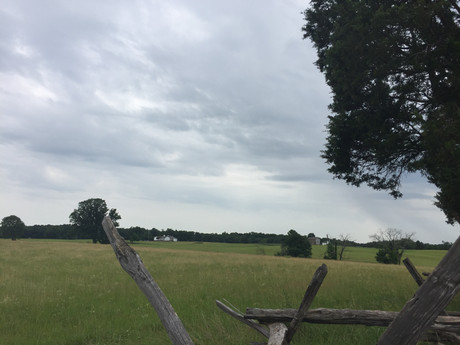 Viewing Henry Hill From the Confederate Lines - Visitor Center is at Left, Henry House at Right Viewing Henry Hill From the Confederate Lines - Visitor Center is at Left, Henry House at Right One of our stops on our recent trip to the Washington area was Manassas Battlefield. The very first stop at the battlefield was, of course, the visitor center. At Manassas, that is located on Henry Hill, site of the heaviest fighting during the first battle. Manassas, known to some as Bull Run, is unique in that it doesn't just commemorate multiple days of fighting, it covers two separate battles on the same ground, fought roughly a year apart. The majority of 1st Manassas was fought on and around Henry Hill. On July 21, 1861, many civilians came out and sat out on a hill overlooking the battleground to watch the pageantry and observe what both sides believed would be a swift and ending to this war. Take two sides made of Americans, distribute each a full share of American hubris and voila, naivete regarding war. The townspeople spread blankets and picnicked under the July sun. No one expected what really happened. 85-year-old Judith Henry was bedridden in the house atop the hill. During the battle her house was destroyed by Union canon fire and the widow was killed. She is buried just behind the reconstructed home where the Henry family had lived for over 100 years. A Legend is Born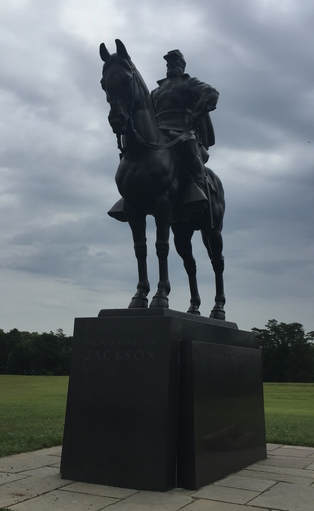 Monument Marks Spot Where Jackson Stood "Like a Stone Wall" Monument Marks Spot Where Jackson Stood "Like a Stone Wall" During the battle, the Union was gaining the upper hand and Confederate troops began to fall back to the treeline. Just inside that treeline a 37 year old college professor whose quirky ways had earned him the nickname "Tom Fool" was sitting on his horse and preparing to lead his 2,500 Virginians onto the battlefield. When told that the enemy was driving the Confederates, General Thomas Jonathan Jackson replied, "Then we will give them the bayonet." In addition to a military officer, Jackson was a strict Presbyterian, a Calvinist of the highest order. There was no way in his mind that he could die any time other than the ordained moment. He therefore didn't take many extra precautions to avoid the event. So moments later he was on Henry Hill leading a push against the rallying Union forces, standing out in the open, not remotely seeking cover. General Barnard Bee saw this spectacle and cried out to his men "There stands Jackson like a stone wall! Let's go to his assistance!" Bee would be killed in the following moments and Jackson had earned a new nickname - one that people tend to remember more than his given name. Here Come the Georgians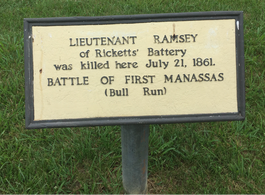 Brutal Fighting Ensued When the Georgians Overran Rickett's Battery Brutal Fighting Ensued When the Georgians Overran Rickett's Battery The Union artillery had been commanded to report to Henry Hill and open fire. Their commander pointed out the lack of infantry support but the command stood. As they unlimbered their artillery they noticed they were a tad late. The Confederate artillery was much closer than anticipated and already opening fire. What followed is described at the battlefield as an "artillery duel." It was basically two lines of cannons set up entirely too close together and blasting away at each other. It wasn't a good situation for anyone involved. In a world where bigger is better and might makes right, having eleven artillery pieces on a hilltop sounds right invincible. In reality, without infantry support, those batteries are sitting ducks. So when that terrible whoop came from yonder woods - that first occurrence of the Rebel Yell - the Yanks knew they were in trouble. The Georgians poured from the treeline along with Kentuckians and Virginians and came rushing at the artillerymen. It doesn't matter how big your guns are when about 50 men are facing down 6 or 8 regiments of screaming angry Southerners. The artillerymen fled or were killed. The Confederates took the hill and then pushed back two gallant attempts by the US Marines to reclaim it. 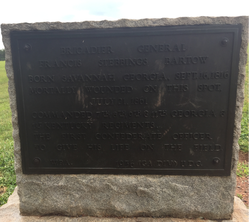 Bartow's Monument, Likely the First Ever Placed on a WBTS Battlefield Bartow's Monument, Likely the First Ever Placed on a WBTS Battlefield In the fighting that day, there were approximately 5000 casualties. The nation learned that the war would be neither quick nor glorious. The townspeople who came to watch wound up fleeing in fear. Their evacuation hindered the Union retreat by clogging up the roads with extra traffic and chaos. Everything that had been associated with war in the past no longer existed - if it ever had. Manassas was violent, brutal, unforgiving. Rather than a parade with fancy fireworks, spectators witnessed two giant brutes fighting on a hillside, each trying to find the crudest way imaginable to destroy the other, with little or no regard for collateral damage. Among the dead were Savannah's General Francis Bartow and a 26-year-old Roman, Private Charles B. Norton. Bartow was commanding the 7th, 8th, 9th, and 11th Georgia regiments as well as the 1st Kentucky regiment. Norton was assigned to Company A, 8th Georgia. General Barnard Bee of South Carolina, who inadvertently gave Jackson his nickname was also killed at Manassas. They are just a few of the many. And Manassas was just the beginning of a war that would claim Jackson as well. It is hard to overstate just how much America changed on Henry Hill at 1st Manassas. May we never forget what happened there. May it be a lesson to us in times of incivility. May the lesson be that there is no easy, quick, or glorious way for war to replace proper and civil debate. And may the brutality on Henry Hill never find our own line of sight.
0 Comments
Leave a Reply. |
Sam B.Historian, self-proclaimed gentleman, agrarian-at-heart, & curator extraordinaire Social MediaCategories
All
Archives
November 2022
|
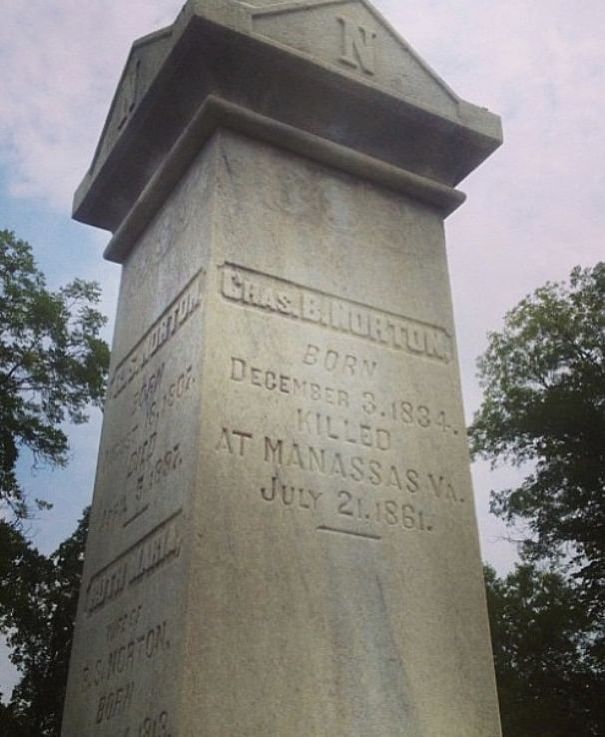
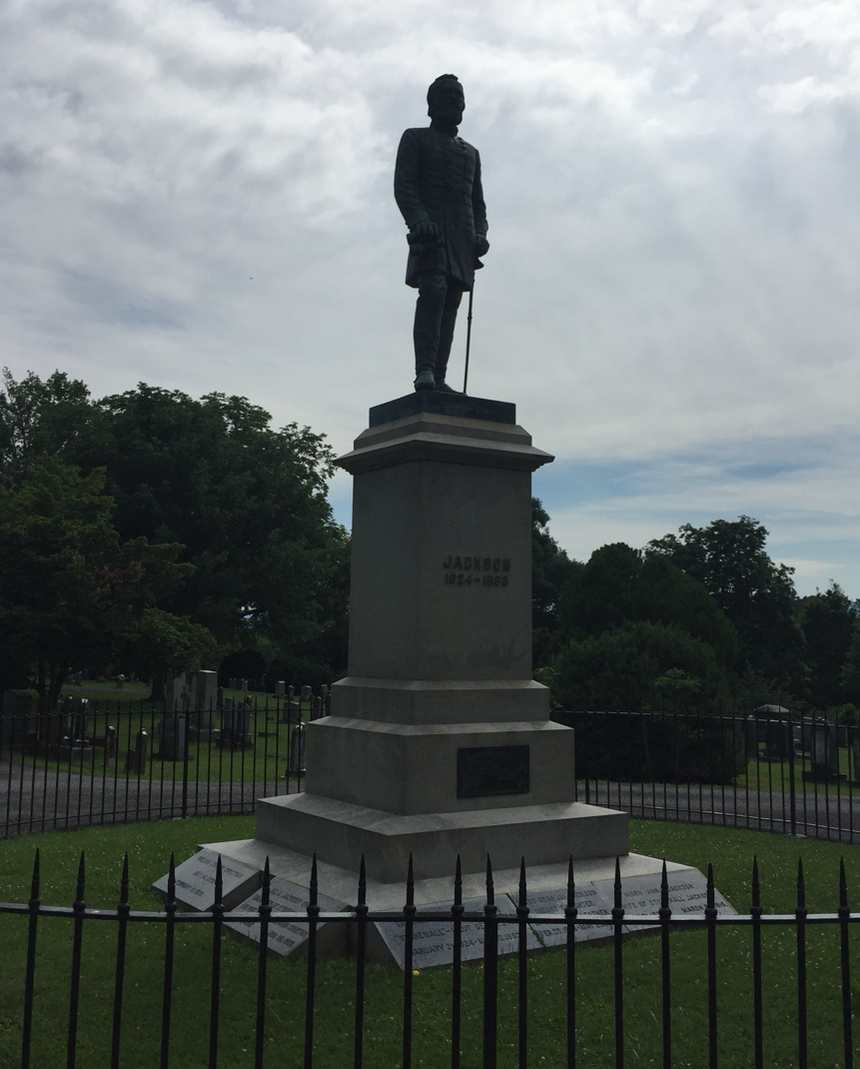




 RSS Feed
RSS Feed
